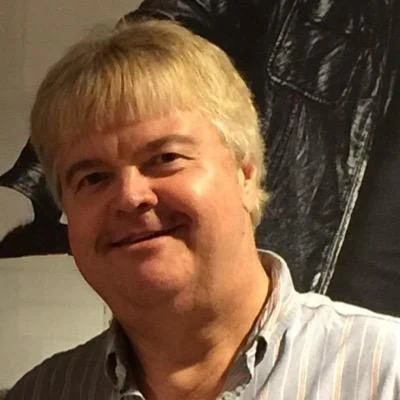Barrett Media produces daily content on the music, news, and sports media industries. To stay updated, sign up for our newsletters and get the latest information delivered straight to your inbox.
Tommy Kramer is a 35-year industry veteran with experience in programming, operations management, and talent coaching. He has worked with over 350 stations in all formats, specializing in coaching morning shows.
The Texas Radio Hall of Fame member also works with voice actors and is a frequent blogger on his website, kramermedia.net.
He is this week’s featured consultant.
Jeff Lynn: Give me your overall view of the state of the radio industry.
Tommy Kramer: It’s easy to hear that radio is a dying medium, but the vast successes across the country in Talk, Country, CHR, and Contemporary Christian – not to mention some pretty exciting Latino stations – prove that this is not true.
There are a lot of dull, boring “paint by numbers” stations, though. I don’t want to hear the exact same music and Content in Dallas as I do in Milwaukee.
JL: How do you determine the best approach when starting with a new client?
TK: That’s an easy one. The first thing I look for is what they do best, no matter how raw the air talent is. Then, in little bite-size pieces, we gradually take away everything else, so we only LEAVE what they do best.
JL: Do you find more successful talents more open to coaching than younger talent in smaller markets?
TK: It depends on how smart they are, regardless of market size or experience. Marlon Brando had a coach. So did Tom Brady. So did Michael Jordan. Anyone who thinks they can’t improve with good coaching has their head in the sand. You should ALWAYS be looking for a way to get better.
JL: What is the difference between coaching radio talent vs. voice actors?
TK: I use a lot of voice acting (and just plain acting) techniques in my coaching, but I’d say that voice actors who haven’t done radio are more of a challenge. I’ve worked with people just looking to get started to people making millions of dollars a year in both radio and the voice acting arena. Standing out in the voice-acting arena is much harder.
JL: No need to name names but tell me about a particularly difficult talent and how you broke through with them.
TK: A morning team show in Florida. When I was Corporate Talent Coach of Paxson Radio’s 47 stations, we had them on several of our stations in all the bigger markets in Florida and a few other cities. They didn’t want to be coached, the atmosphere was toxic at times, but I just did my best to tighten up the show and overcome one key member leaving the show, and they did well until Paxson sold to I-Heart. The other partner in the show, who went on to do a show on Sirius XM, complimented me one time on the air years later, saying he had learned a lot from me. You never know…
JL: How are you coaching talent to extend their brand with social media and podcasts?
TK: We use all sorts of ideas for social. We lean heavily on video, stuff that goes deeper on a subject than you can on the air, parody songs (if they have them), interviews, basically constantly feeding and refreshing Content. And we use quite a bit of social media references in the radio show. Podcasts are a different breed, however. I get people from total beginners who have never been on the air to seasoned veterans or hip Gen Z types who think they’re gonna have 200,000 listeners in a month. I don’t enjoy podcast work nearly as much as radio and TV coaching.
JL: What tips do you have for show prep? Music radio.
TK: Start in your living room and work out from there. No “clickbait” article in the world can match what you have in common with the listener that matters to that person TODAY. My first mentor, the great Larry Ryan in Shreveport, Louisiana, told me early on that “you set yourself up as the expert,” and people come to trust you. I can’t walk down the street there with Larry without somebody coming up to him to say “Hi” like they’re old friends and that they listen to him every day.
JL: Your website has a blog entry about “conquering liners.” Could you expand on that?
TK: Sure. Liners are usually boring, and the “reads” are usually boring. “We’ve always done them” is no reason to continue. Many legendary stations had no liners or slogans. Their “liner” was their NAME. So, I give simple voice acting tips on how to make them come alive on the air. But as we dive deeper than the entry on my website, some of the tips are things that people have never heard, since they came from a combination of Acting (my stepfather was a brilliant actor, and was coached by legends), Writing (I’ve written over 800 coaching tips and articles for radio trade publications, and literally hundreds and hundreds of liners, promos, Imaging pieces, and commercials) and Musicianship (I’m a guitar player, and have always found that a musician’s sense of timing was a difference maker).
JL: Do you have a tip for writing station liners, imaging, and seizing a moment?
TK: Don’t try to be cute unless it’s “smart” cute. (Think Steve Martin or Garry Shandling.) State what makes you different. Rinse and repeat a million times. Seizing a moment is done on the air, repeated in a promo.
JL: What is the best career advice ever given to you?
TK: I don’t know where to start. Lee Abrams: “You can’t be funny every time you open the mic.” Steve Kelly and Bill Young helping me find my on-air voice. But I’d say the best advice for me, and for anyone, came from the Dean of Science Fiction, Robert Heinlein, who said in one of his books, “Be yourself, and be it in style.”
Tommy Kramer
Talent Coach
214-632-3090 (mobile)
Email here:

Jeff Lynn serves as Editor of Barrett Media’s Music Radio coverage. Prior to joining Barrett Media, Jeff spent time programming in Milwaukee, Omaha, Cleveland, Des Moines, and Madison for multiple radio groups, including iHeartMedia, Townsquare Media, NRG Media, and Entercom (now Audacy). He also worked as a Country Format Editor for All Access until the outlet shut down in August 2023.
To get in touch with Jeff by email, reach him at Jeff@BarrettMedia.com.









